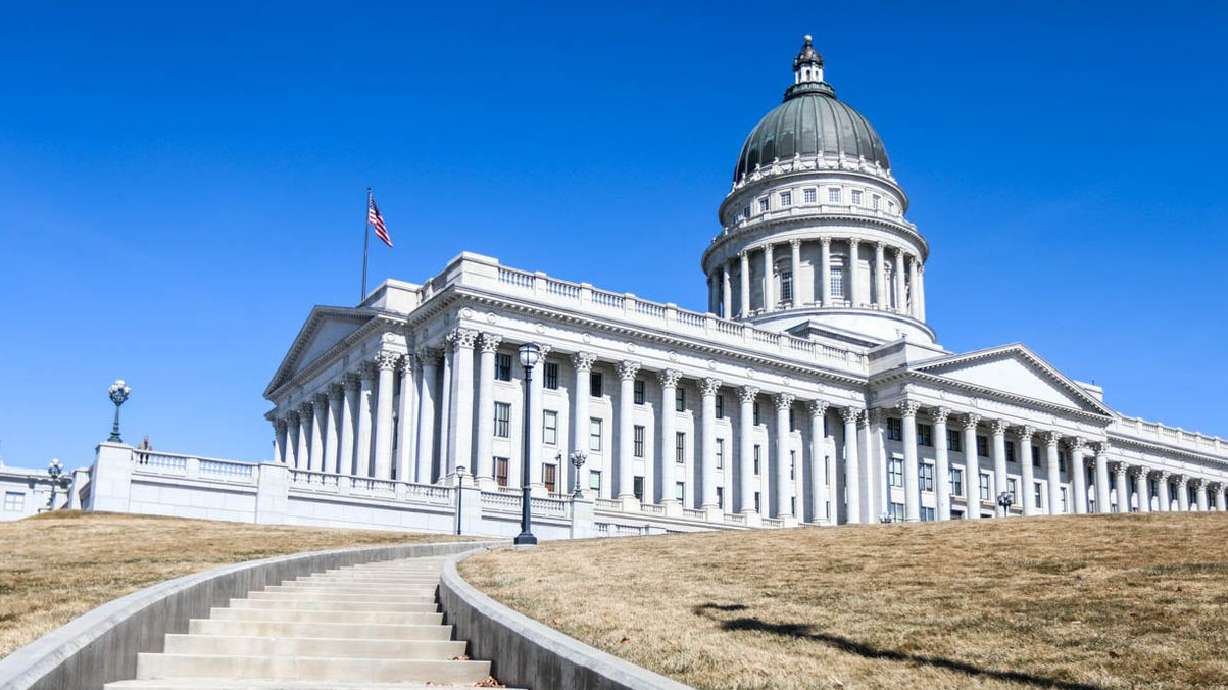Estimated read time: 4-5 minutes
This archived news story is available only for your personal, non-commercial use. Information in the story may be outdated or superseded by additional information. Reading or replaying the story in its archived form does not constitute a republication of the story.
SALT LAKE CITY — A proposed Utah bill would require child welfare investigators to ask children whether they want a trusted adult there for support during interviews.
A mom told lawmakers her 6-year-old daughter was traumatized when the Utah Division of Child and Family Services pulled her out of her class to ask about her parents.
"They questioned her, sent her back to class. The next day, my mom went to drop her off, and my daughter didn't want to leave the car. My 6-year-old daughter that loves school didn't want to leave the car. She was holding onto my dad for dear life and did not let go — she did not want to be left there," Stephanie Hansen told the House Health and Human Services Committee on Tuesday.
She shared her experience with Rep. Calvin Musselman, R-West Haven, who is sponsoring the bill, HB153.
Musselman said that drafting the bill took him on a "deep dive" into the complexities of the job of child welfare investigators. The bill, he said, was the result of work between him, representatives from the Division of Child and Family Services and other stakeholders.
Hansen said her family's experience with the child welfare agency began when her 3-month-old daughter was failing to thrive. A doctor referred her to Primary Children's Hospital.
"I love the hospital, but it takes a long time to get a child into Primary Children's," she said.
The infant needed to be sedated for tests. Within fewer than 24 hours, Hansen said the doctor at Primary Children's Hospital called child welfare services. She did not say the doctor's reasons.
"DCFS came in and said we are going to go interview my, at that time, 6-year-old daughter," she recalled, adding that the investigators questioned her daughter and sent her back to class. The next day, she did not want to go back to school, the mom said.
"I was in the hospital for 10 days with my youngest. We found out later that my daughter was lactose intolerant. They put failure-to-thrive charges on me. My daughter is still dealing with PTSD (resulting) from the incident," she said. "Everything was resolved, I have no charges against me. Everything was dropped, but this little 6-year-old is now 8, still has issues, and still has trouble at school because of this."
Musselman said it might have reduced the trauma for the girl if someone had been there to support her during that interview. He said he and Hansen met with Division of Child and Family Services officials, where they worked together to "(land) in a spot where we felt really comfortable."
The bill would require an interviewer to "assess a child's level of comfort with the interview and make reasonable efforts to ensure the child is comfortable during the interview," Musselman said.
If the interview is taking place in a location other than a Children's Justice Center, the interviewer would need to ask the child if they are comfortable being there alone with the interviewer. If not, they need to allow the child to have a "support person" present, Musselman said. That person would need to be 18 or older, and could be a school employee. The person being investigated could not be the support person. The support person would also not be able to influence the child through statements or reactions.
If the person the child chooses to support them isn't available, the bill would allow the interview to proceed without them, at the interviewer's discretion.
"There's only limited opportunities for these interviews to take place. There's a balancing act, right? They're trying to potentially protect a child that's being abused and they need to be able to interview witnesses in a reasonable timeframe," Musselman said.
Rep. Candice Pierucci, R-Herriman, questioned why a support person isn't already required for interviews with children under 12.
Musselman said he believes asking the child if they're comfortable without someone else there is sufficient, as it gives them the opportunity to make that decision. Some children may not want anyone there for the interview, he noted.
Diane Moore, director at the Division of Child and Family Services, thanked Musselman for his work on the bill and Hansen for sharing her story. She said she hopes the process was a "healing" experience for Hansen's family.
"This bill creates an expectation for DCFS to conduct child interviews with even greater sensitivity and awareness of the impact it has on the life of a child, in a way that is also flexible enough for us to take into consideration the many factors unique to each individual situation," Moore said.
The bill received approval from the committee and it will now move to the House for a vote.










